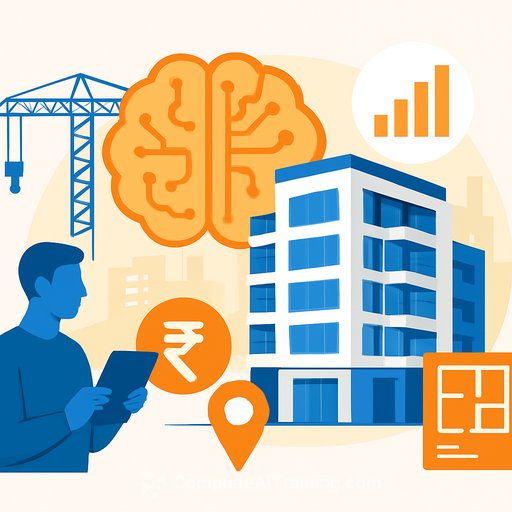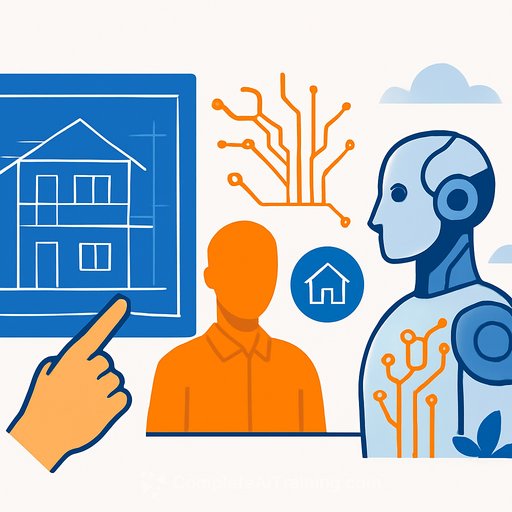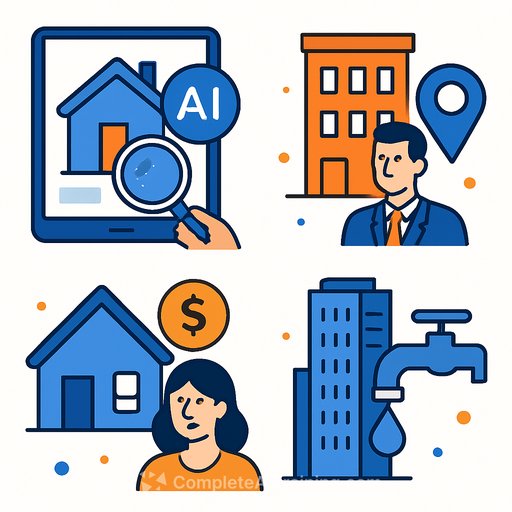Top 10 AI Prompts and Use Cases in the Real Estate Industry in Atlanta
Atlanta's real estate market is changing quickly with AI tools improving property valuation, marketing, and management. Technologies like predictive analytics, virtual tours, and AI leasing assistants are helping companies achieve appointment conversions as high as 41%. Innovations also include AI-powered affordable housing projects that double efficiency and AI fraud detection with 99% accuracy, making Atlanta a leader in technology-driven property management and investment.
How AI is Shaping Atlanta's Real Estate Market
Local startups and established tech firms in Atlanta use AI-powered solutions to enhance customer experience and streamline real estate operations. Predictive analytics help agents price properties accurately, while virtual tours and AI leasing assistants improve client engagement. However, AI-based rent-pricing algorithms have contributed to rising rents, creating affordability challenges amid limited rent regulations.
On the development side, AI supports affordable housing projects, such as AI-powered townhomes in West End, which increase efficiency and reduce costs without compromising community character. Real estate professionals can build AI skills through practical programs like Complete AI Training to stay competitive.
Methodology for Identifying Top AI Prompts and Use Cases
Identifying effective AI applications in Atlanta’s real estate involves analyzing market-specific data and leveraging machine learning, natural language processing, and generative AI. Building proprietary datasets suited to local conditions ensures accurate valuations and predictions while minimizing bias.
Popular AI applications include:
- Automating lease documentation
- Virtual staging
- Optimizing lead generation
- Real-time investment analysis
Successful AI adoption requires corporate strategies that focus on data governance, workforce training, and integrating AI with existing systems to maintain efficiency and tenant satisfaction.
1. AI Leasing Assistant at Lincoln Property Company
Lincoln Property Company uses Elise AI’s assistant, Mary, to automate 90% of prospect communications. Mary handles text, email, chat, and voice interactions in multiple languages, scheduling tours and following up with prospects. This has raised appointment conversion rates to 41%, significantly above the industry average of 10-15%. The AI assistant reduces administrative workload and saves millions in payroll costs.
2. Marketing & Lead Generation with HouseCanary
HouseCanary’s machine learning platform supports Atlanta agents by providing automated valuation models, real-time market forecasts, and neighborhood demand heatmaps. These tools help agents price properties accurately and target marketing campaigns effectively, improving lead quality and conversions. AI also identifies off-market high-potential properties, expanding opportunities beyond traditional listings.
3. Data-Driven Decision Making Using Skyline AI
Skyline AI uses machine learning and predictive analytics to produce accurate, real-time property valuations for Atlanta’s commercial real estate. It analyzes diverse data points, including economic indicators and neighborhood amenities, offering a more precise alternative to traditional appraisals that can be slow and biased.
4. Enhanced Client Engagement With Ask Redfin Chatbots
Ask Redfin, integrated into the Redfin iPhone app, provides instant 24/7 answers to property queries using advanced large language models. It helps buyers in Atlanta with information on open houses, HOA fees, school districts, and local market trends, improving responsiveness and client satisfaction.
5. Smart Building Management Through HappyCo’s Predictive Maintenance AI
HappyCo applies AI to predict maintenance needs in Atlanta’s multifamily housing market. Its Joy AI analyzes millions of service records to provide actionable insights on maintenance hours and delays. Property managers access this data via mobile apps and dashboards, enabling proactive upkeep and operational efficiency.
6. Generative AI for Content Creation and Virtual Staging by SoluLab
SoluLab uses generative AI to automate content creation and virtual staging. Their AI agents generate engaging property descriptions and stage vacant homes visually within seconds, matching buyer preferences. This accelerates marketing efforts and enhances sales presentations.
7. Fraud Prevention and Compliance Automation with Ocrolus
Ocrolus offers AI-powered document automation for fraud prevention and compliance in Atlanta’s real estate. Their Human-in-the-Loop system extracts and verifies data from lease agreements of varying formats and quality, improving loan decisions and tenant screening accuracy.
8. Investment and Portfolio Optimization with Tango Analytics
Tango Analytics provides AI-driven tools for managing real estate investment portfolios. The platform helps forecast performance, manage leases, and spot high-value market opportunities using predictive analytics designed for large portfolios in Georgia and beyond.
9. Construction & Project Management Enhanced by Doxel’s AI Forecasting
Doxel uses autonomous 360-degree cameras mounted on hard hats to capture real-time jobsite data. This AI system compares progress against BIM models and schedules, identifying delays and incomplete work early. It helps keep Atlanta construction projects on track and within budget.
10. Collaborative AI Workflow Management with PromptDrive.ai
PromptDrive.ai offers a platform for real estate teams to organize, share, and refine AI prompts efficiently. It supports popular AI models like ChatGPT, Claude, and Gemini, enabling seamless collaboration across locations.
Conclusion: What’s Next for AI in Atlanta Real Estate
AI continues to improve efficiency, customer experience, and affordable housing in Atlanta’s real estate market. Agents and developers benefit from tools that streamline management, optimize pricing, and personalize engagement. As the technology advances, balancing innovation with social impact will be critical for sustainable growth.
Frequently Asked Questions
- How is AI transforming the real estate industry in Atlanta?
AI enhances property valuation, marketing, and management through tools like predictive analytics, virtual tours, and AI leasing assistants, improving efficiency and client interaction. - What are some prominent AI use cases for real estate professionals in Atlanta?
Key uses include automated leasing communication, AI-driven marketing, data-driven valuation, AI chatbots, predictive maintenance, generative AI content creation, fraud detection, investment optimization, and AI-powered construction monitoring. - What challenges does AI adoption bring to the Atlanta real estate market?
Challenges include rent affordability concerns due to AI pricing, ethical use to avoid bias, compliance with local regulations, system integration complexity, and maintaining human oversight. - How can real estate professionals in Atlanta develop AI skills?
Programs like the AI Essentials for Work bootcamp offer practical training to apply AI tools effectively in real estate. - What impact does AI have on affordable housing projects in Atlanta?
AI improves efficiency and reduces costs for affordable housing developments while preserving community character, as seen in AI-powered townhome projects in West End.
Your membership also unlocks:





